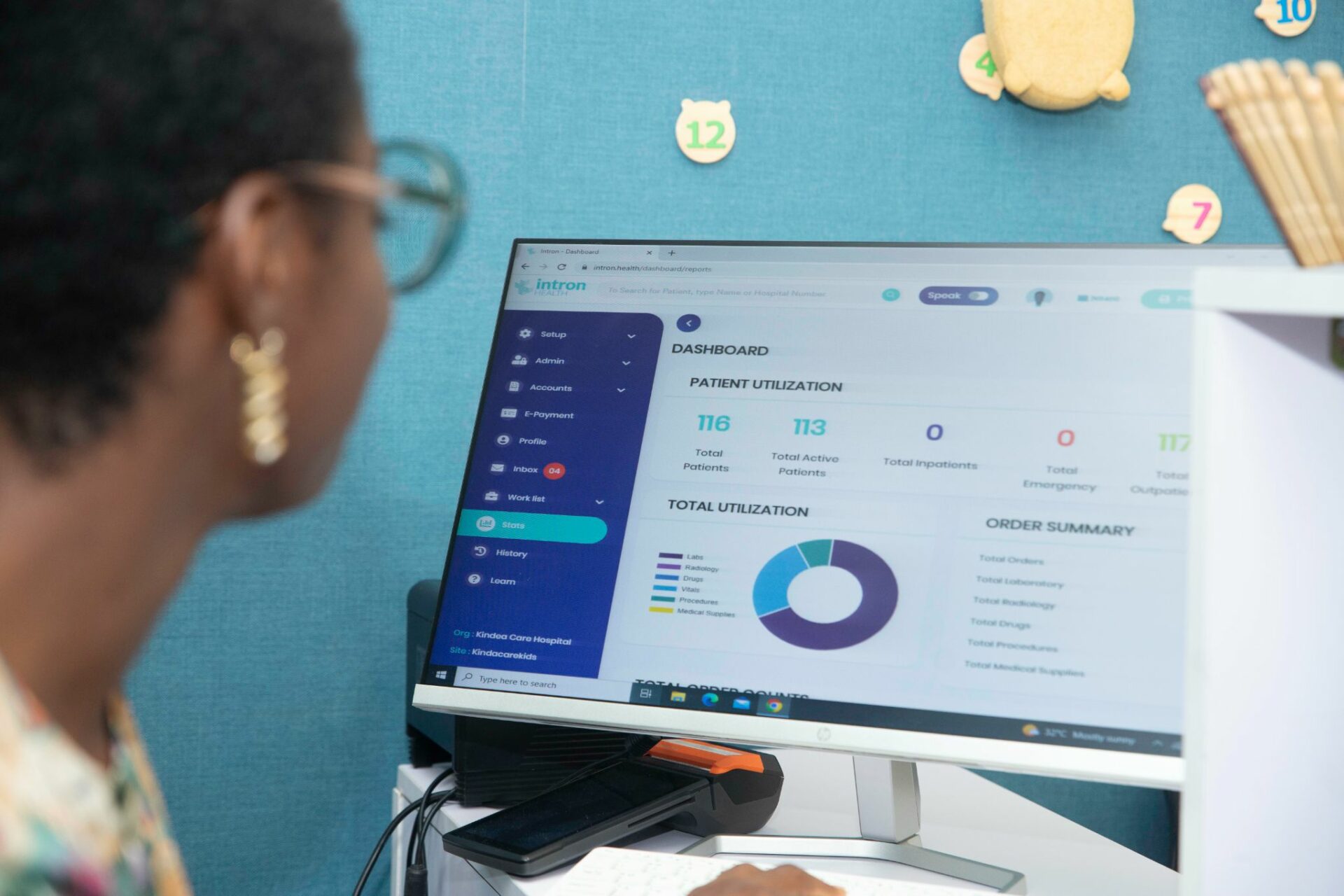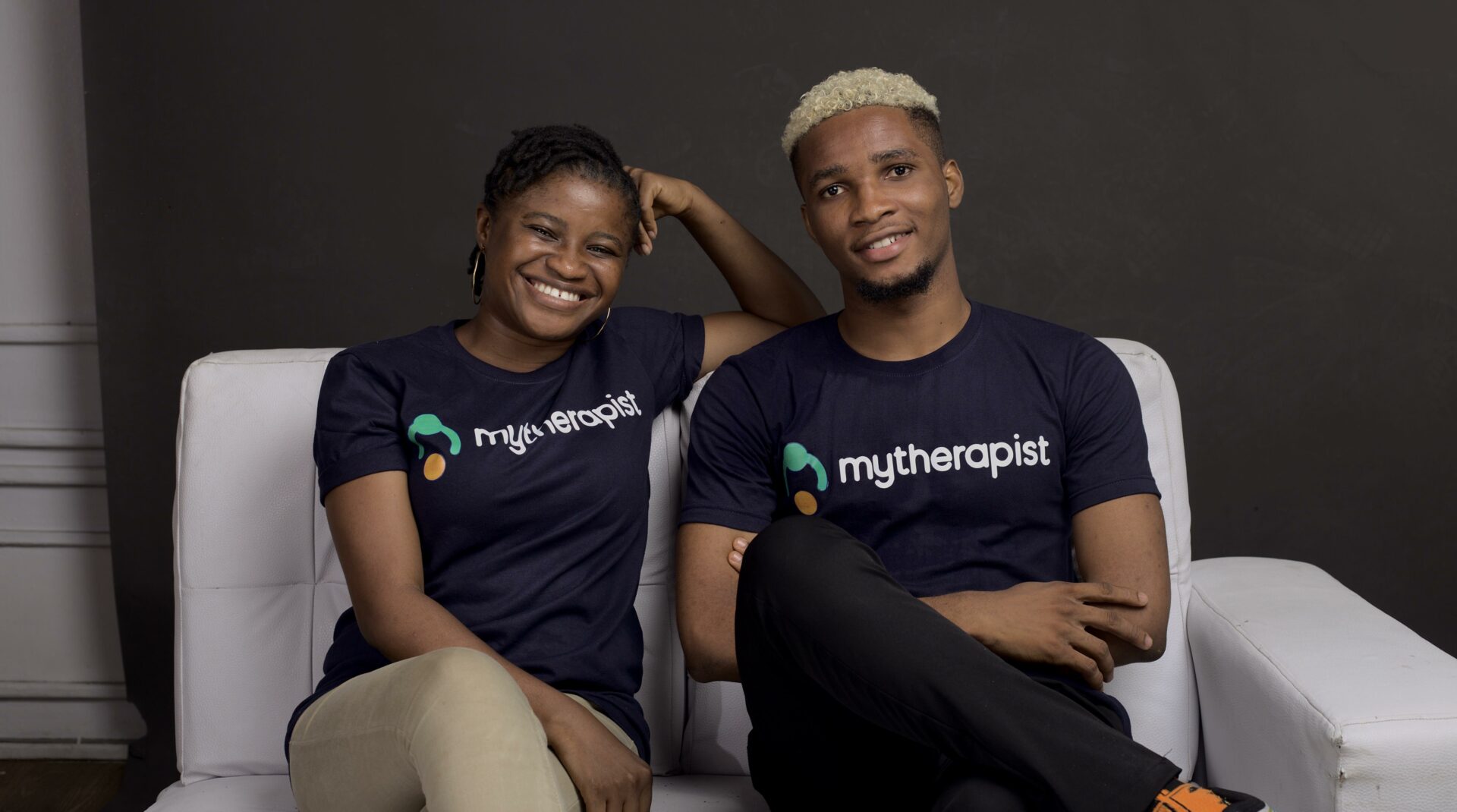While studying medicine at a Nigerian university between 2005 and 2011, Tobi Olatunji developed an interest in design and technology, partly because he was easily irritated by inefficiency.
For instance, he was upset in an obstetrics and gynaecology class when one of his lecturers described how a newborn is delivered using words and hand gestures, with no visual representation.
He said to himself, “Why are you doing this? Just play us a video or show us pictures. Instead of trying to explain something with your head and hands, you can just play a 3D video, and everyone will understand exactly what happens.”
Deciding to complete a software project, Olatunji developed a learning management system that complements digital lecture notes with medical 3D animation.
He believes spending time writing down a patient’s feelings, prescribing medications, or suggesting tests with pen and paper is ineffective.
While thinking of a solution, he wondered why we have to do some things, why others are done in particular ways, and how to make doctors’ and patients’ lives easier by removing redundant work.
That solution would eventually become an Electronic Medical Record (EMR).
https://techpoint.africa/2023/02/13/electronic-medical-health-records-africa/
Challenges while building the EMR
Olatunji began building while in university. At that time, they couldn’t even build simple software applications because they lacked the technical know-how. When the person hired to build them an app didn’t do it until after three months, Olatunji realised he needed technical knowledge to build a product.
He wrote his first line of code in 2018 when he and his Co-founder, Olakunle Asekun (COO), started to build Intron Health, and the company tested the EMR in 2020.
Olatunji and his team tried to launch Intron Health in 2020 during the COVID-19 pandemic. However, they realised that busy hospitals were not the place for EMRs because they weren’t designed for these healthcare centres, as some doctors and nurses stopped using the solution for reasons ranging from too many patients to some doctors struggling to type.
“We made the software. Everyone was happy. But we were disappointed to find out that, despite our best efforts, things were not going well because the hospitals were losing some of their patients.”
Fortunately for the company, some doctors asked if Intron Health could resolve their data entry issues and Olatunji realised they could come up with a solution to the problem he had noticed while working at many private hospitals.
Medical practitioners turned healthtech founders
Olatunji and Asekun have medical backgrounds. The former was a doctor in Nigeria before transitioning into tech, while the latter was a physical therapist for two years before switching to finance and operations.
Olatunji has spent a decade in tech, during which he has built and integrated systems for large hospitals in the United States, Canada, Japan, Australia, and Europe. The past seven years have seen him focus on machine learning for healthcare, especially natural language processing and its future healthcare applications.
He has learnt from experience that doctors in Nigeria overwork themselves because of the low doctor-to-patient ratio that sees 30 to 40 patients walk up to a doctor daily.
Before deciding to devote himself to technology, Olatunji practised in Nigeria for about two and a half years. Moving to the US in 2016, he discovered that a doctor might see 15 patients per day, with many tools at their disposal, quite unlike doctors in Nigeria.
Since graduating from medical school, he has been building technology for hospitals in Nigeria.
How Intron Health works
Intron Health is a clinical speech-recognition platform supporting over 200 African accents.
The speech-to-text software was built on top of an EMR which the company provides for hospitals. However, Intron Health has more customers using its speech-to-text than its EMR.
The company provides this service to hospitals. This is important because doctors write patient notes for legal reasons. These notes typically include specific details about what happened, what the patient said, what they recommended, the treatment, and the patient’s history.
While just a few hospitals use EMRs to make their work easier, Olatunji says doctors who use these digital records also find it stressful and sometimes use their free time to complete notes.
This is where Intron Health comes in. It helps hospitals by saving doctors three to four hours per day, allowing them to dictate rather than type or write notes.
Though text-to-speech has an auto-correct feature, doctors are still ultimately responsible for the final version of their notes because “the tool is not perfect.”
Hospitals and doctors can access this service via the web in two different ways.
Intron Health primarily sells to hospitals, who then make the software available to their doctors. Physicians can also go online, create an account, and use the service.
Growth, challenges, and plans
Olatunji claims that Intron Health is the first startup in Africa to develop a speech-to-text tool specifically for African healthcare.
This means the startup competes with software from Amazon, Microsoft, and others, such as the built-in speech-to-text keyboards on the iPhone and Google.
While these tools are not designed for the average African, Intron health supports clinical speech transcription in over 200 African accents.
Intron Health deploys a subscription-based business model. Hospitals or doctors purchase Credits per month per doctor.
The company whose EMR lists more than 20,000 patients raised over $200k pre-seed for its operations in 2022.
Despite a current staff strength of 14 people, finding qualified sales, support, and engineering team members to build an effective speech-to-text AI model for African hospitals was a challenge for Intron Health.
“Being one of the few startups in the country developing a large AI model in healthcare presents a daily engineering challenge for us,” Olatunji says.
The Intron team collected over one million audio samples from 13 African countries before using NVIDIA NeMo, a software framework for text-based generative AI, to build the speech-to-text software. They also tested large language models and several commercial and open-source speech recognition frameworks.
The last models were trained using cloud-based NVIDIA graphics processing units (GPUs).
Olatunji claims that the team initially attempted to train using central processing units (CPUs) as the least expensive option, but that took forever. Therefore, Intron Health began using a single GPU and eventually expanded to using multiple GPUs in the cloud.
Intron Health uses the text-to-speech tool in approximately 24 hospitals in Kenya, Nigeria, South Africa, and Ghana. It plans to reach 100 hospitals across these nations in 6-12 months.
“Across these four nations, we are currently conducting a study in which we time the doctors as they type a paragraph and then have them dictate the same while we show them the results,” Olatunji reveals.
With more than 92% accuracy and over 200 African accents, the resulting Transcribe app can accurately capture doctors’ dictated messages, reducing the time spent on paperwork by an average of 6x.
The company is considering how to integrate its software into significant EMRs and has teamed up with NVIDIA, a strategic partner for the Commonwealth initiative, to promote the use of AI in Commonwealth states.










